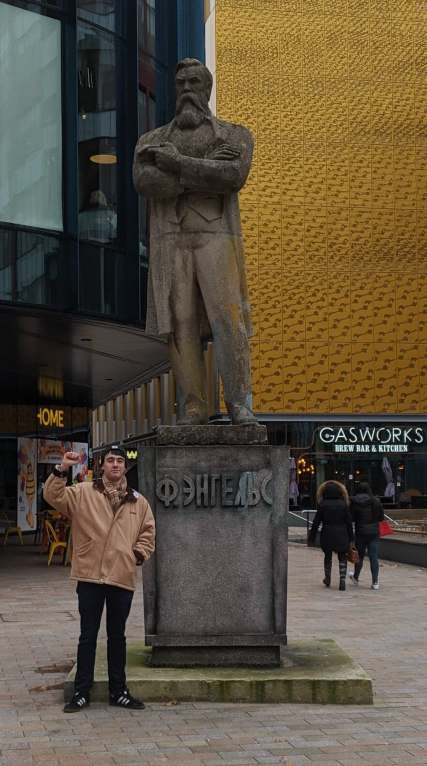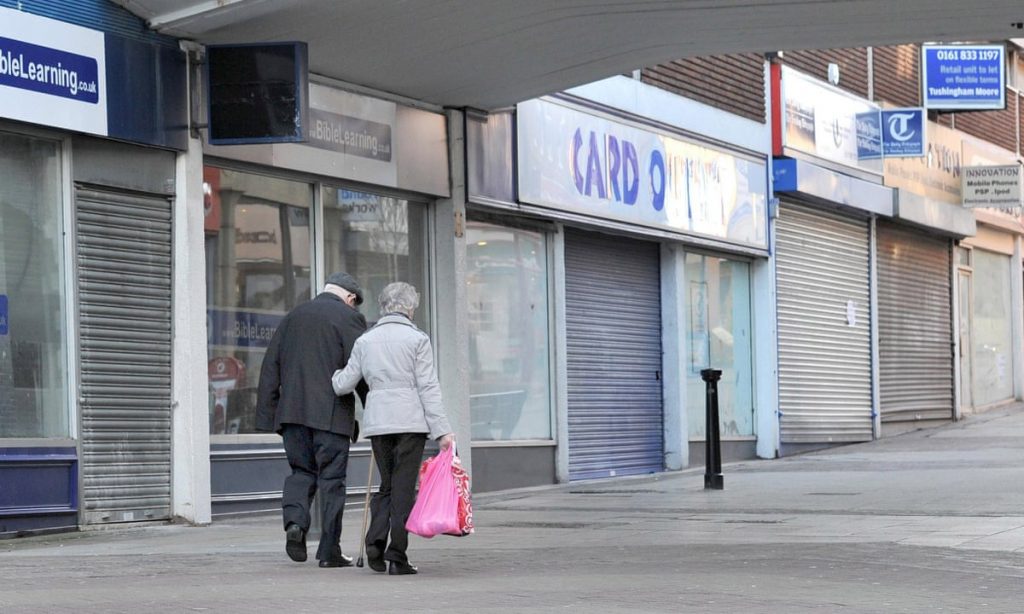Peter Stoddart writes about the continued effects of the pandemic on the UK’s economy, exacerbated by Tory recklessness

The ongoing pandemic continues to wreak havoc on the UK economy. While the socialist countries of the world have been able to move past this period of turmoil, protecting their economies, and more importantly, saving countless lives; the UK continues to suffer.
Figures released yesterday showed that UK borrowing reached a new December record last month. It is estimated that by the end of this financial year, borrowing could reach almost £400 billion. Similarly, the UK’s National Debt now stands at £2.3 trillion. This in itself is not an issue, capitalist countries across the world have been forced to borrow at unprecedented rates. We as communists, are not resisting this level of spending, in fact we call for far more. Having now left the EU, there are real opportunities to reintroduce state aid to further support areas in need.
However, this rate of spending does become an issue for a Conservative Party who prides itself on being the “natural party of government”, with whom the business class can trust to carry out their bidding. As the Pandemic hopefully subsides this year, Chancellor Rishi Sunak, will look to cut the deficit in any way he can. He has already stated “once our economy begins to recover, we should look to return the public finances to a more sustainable footing.” We only have to look through the last decade to understand what he means by “a more sustainable footing“.
Meanwhile, inflation doubled in the last month of 2020, from 0.3% to 0.6%. Throughout last year, the rate of inflation acted erratically from month to month. This, coupled with the Chancellor’s intentions to “rebalance the books”, represents a grave danger for those potentially being squeezed from both sides, as wages dip, employment stagnates, and inflation looks to rise.
The evidence of this is clear to see, as figures also released this week, showed that by December 2020, nearly 9 million people were forced to borrow more money than usual. This flies in the face of the narrative created by many that the pandemic has forced us all to save our money as there is nowhere to spend. This may well be true for the well-to-do office managers working from their 4 bedroom villas in Surrey, but it could not be further from the truth for the many millions of workers stuck on furlough, struggling to pay rent for their inner city ex-council flat to a landlord threatening eviction despite claiming a mortgage holiday from the bank. In January, those earning less than £10k per year were almost 10x as likely to be put on furlough compared to those earning over £40k. Back in the summer however, the gap was over 6 times as large.
Living on 80% of £10k is not the same as living on 80% of £50k. The government knows this but is unwilling to do more to support the lowest paid workers in society. Living on Universal Credit, similarly is far from easy, yet the Government refused, until the very last minute, to ensure payments would continue to be uplifted by £20 per week. Since March 2020, over a million jobs have been lost in Britain.
The economic story of this pandemic continues to be one of inequality. This is as true for business as it is for individual families. Thousands of businesses on our high streets, the lifeline for many communities, have been forced to close indefinitely. Meanwhile, online retailers continue to force their staff into work, and have posted record profits every quarter. Amazon’s main UK business saw profits surge by 35% last year but its tax bill increased by just 3%. How does this match with Sunak’s intentions to raise taxes to cut the national deficit?
These statistics highlight a grim economic picture, particularly when we look at what may still be coming with Sunak and Johnson at the helm of our government. However, all is not lost. While some in the Labour movement seem content to wallow in their misery that we were unable to elect a Corbyn-led Government, the Communist Party and others have been working flat out throughout this pandemic, growing its membership, and educating workers across Britain.
Just this week, the CP has released a new pamphlet, written by Andy Bain, National Industrial Organiser of the CP, and Bill Greenshields, former President of the NUT. Entitled “Unemployment Fightback”, the pamphlet details key demands and offers examples from the Communist Party’s history to show what we, as communists need to be doing to fight against, not only this government, but also against the capitalist system which uses unemployment as a key tool in the fight against progressive policies.
The William Paul Society is also hosting a meeting discussing the pamphlet with co-author Bill Greenshields tomorrow at 2pm. For details of this, please get in touch with them directly. Andy Bain is also discussing these issues in his article in today’s Morning Star available here.
Across this weekend, the Communist Party is hosting a range of meetings for trade union members of the Party to plan campaigns to help rebuild the Labour movement in the face of the ongoing capitalist crisis. Being part of these, and supporting the work of the Communist Party, will be key to the upcoming struggle against this Tory Government, who are all too happy to wreak havoc on working class communities throughout Britain.
Peter Stoddart



